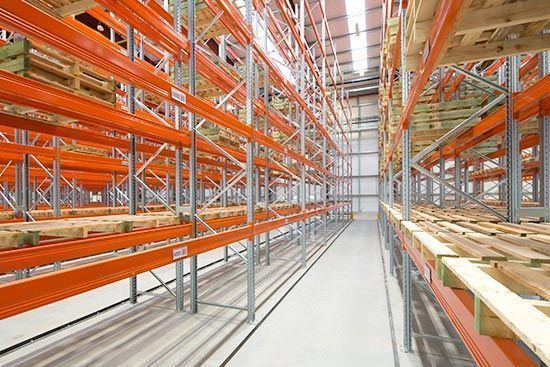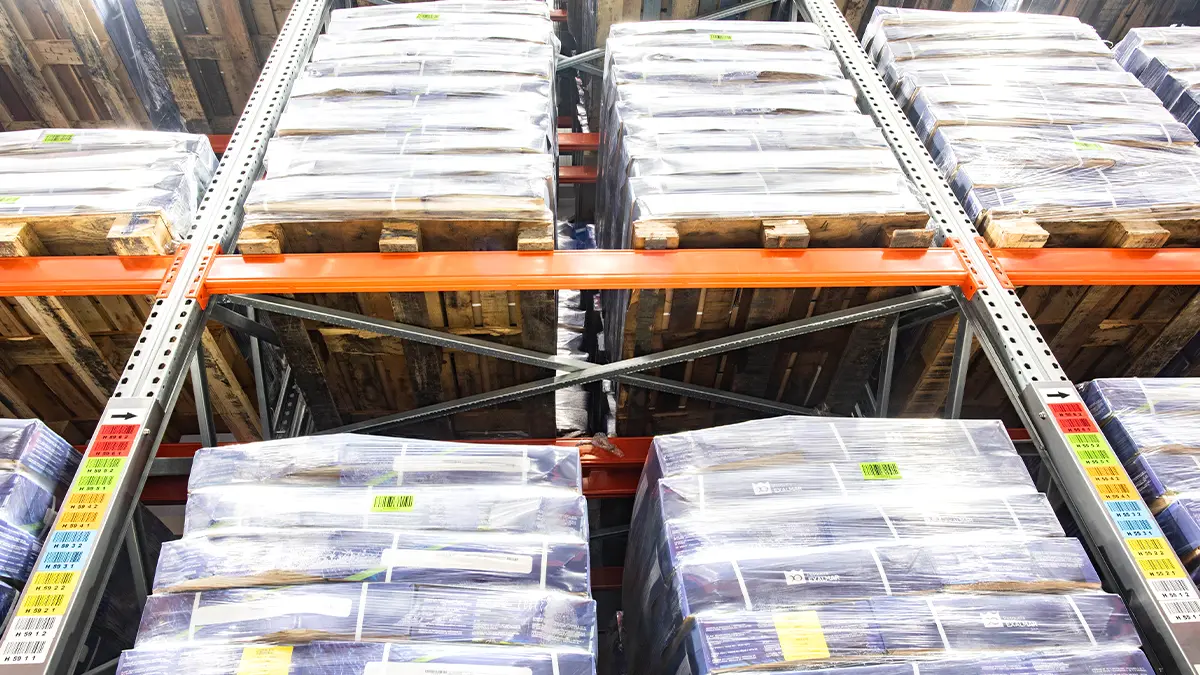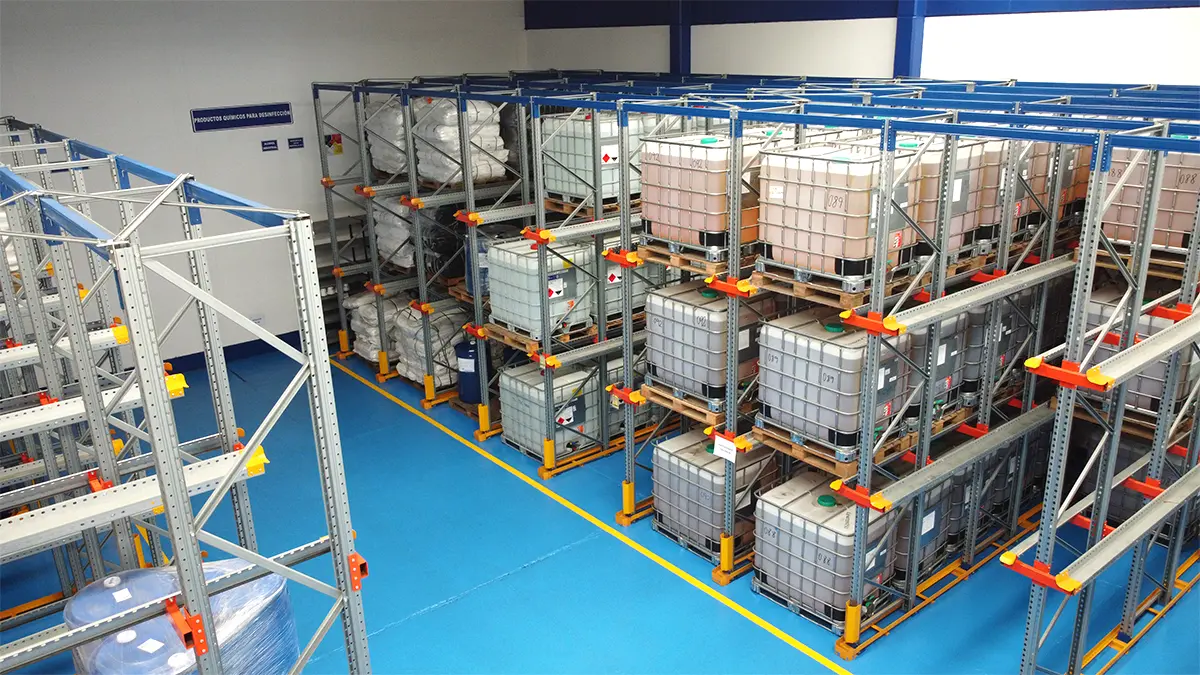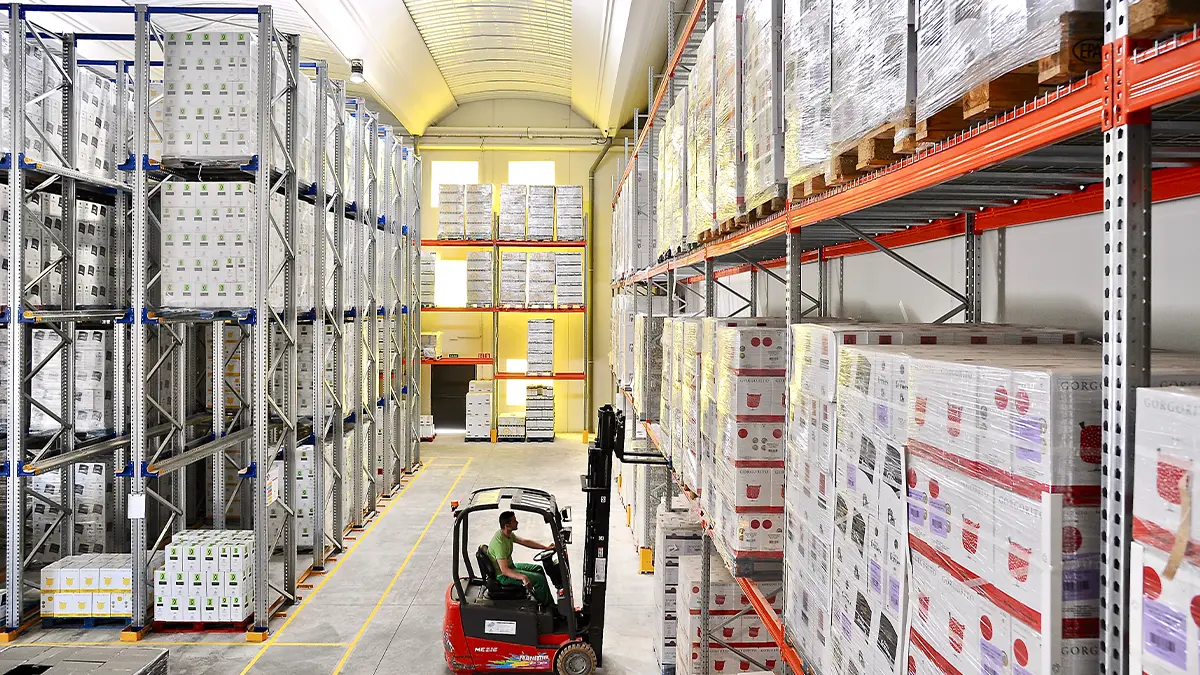Good stock management is an essential condition for the proper functioning of many companies, and is a problem for many of them. Among the different ways of managing stock, perpetual inventory represents an effective and cutting-edge solution to this problem.
What does it consist of?
Perpetual inventory is the stable update of goods inventory in the warehouse. Unlike periodic inventory, which is a manual report on stock on a regular basis (for example, monthly), perpetual inventory provides an immediate, automated and accurate report on the current inventory status at any time.
Stock management software will consider all the movements of each SKU (stock keeping unit), from its entry in the warehouse, with all its internal movements, until its exit. This software will also collect certain information about the goods (value, expiry date, location in the warehouse, type of load, etc.). Finally, it can also organise all the stages of warehouse management, guiding the operators in their different tasks. As a result, perpetual inventory provides a large amount of precise information on each item in the warehouse and enables an overview of the warehouse at all times, guiding logistics operators too.

How is it applied?
To apply perpetual inventory, it is firstly necessary to have a proper Warehouse Management System (WMS). There are several, with different degrees of performance, so the company needs to choose the one that best suits its needs. It is this software that will perform the inventory in an automated way, thus replacing the human being in this task which requires a lot of time and causes errors.
Once the software is installed, operators will be able to start taking inventory using RFID technology with barcode readers permanently connected to the WMS software. Training is also required to properly use its many features.
Environmental effects
Implementing perpetual inventory implies a radical change in the way of managing the warehouse and is not a trivial decision for the company. It is therefore important to consider both the positive and negative aspects before taking this decision.
Advantages
- Time-saving: One of its main advantages is its time-saving. The logistics manager will no longer have to take the inventory of the warehouse and will be able to devote their time to other tasks.
- Clarification: It is necessary to consider the reduction in the number of errors in the stock count. Since these are human errors, warehouse management software is virtually free of it. In fact, although errors can occur, the risk is much lower than with a periodic manual inventory. In addition, the information is constantly updated, dramatically reducing potential errors.
- Reactivity: Perpetual inventory allows the logistics manager to access, simply and immediately, a large amount of information in real time about their warehouse. In fact, they will be able to know at all times the status of their warehouse with the amount of stock by location, value, nature, possible expiry date, etc. As a result, the logistics manager can more easily plan stock replenishment and be more reactive. For example, the simplified calculation of the EOQ (Economic Order Quantity) reduces the risk of stock depletion or excess stock, which are a source of additional costs and give the company a bad image.
- Safety: WMS software can immediately alert them if goods are missing. This makes it an effective way to prevent errors or theft, and avoid the related costs.
Disadvantages
- High start-up cost: The implementation of a perpetual inventory system represents a significant initial investment, since the WMS software suitable for this purpose is particularly expensive. In addition, its implementation may require the modification of existing processes, which may entail additional start-up costs. Finally, training costs can also be expected.

Does perpetual inventory make sense for all businesses?
Perpetual inventory is a particularly useful solution when there are many different items in the warehouse. The more items are stored, the greater the risk of error. Therefore, it is worthwhile for the company with a lot of stock to implement a perpetual inventory system that reduces the risk of possible errors.
Also, if the goods in storage are of significant value, the safety provided by perpetual inventory can be a crucial factor. In fact, WMS software can reduce the risks of theft and errors that would cause additional costs, as already mentioned.
This type of inventory is also interesting for companies that store temporary and fleeting products. WMS software is capable of considering the expiry date of products and indicating priority goods to operators in order to have the least possible loss. In short, perpetual inventory can be especially effective for some businesses.
However, if a company places little importance on the accuracy of the number of products stored, if they do not have an expiry date, are of little value or are only in small quantities, the application of perpetual inventory may not be entirely suitable. It is therefore up to each company to decide whether the initial investment will be compensated by the advantages of perpetual inventory.













